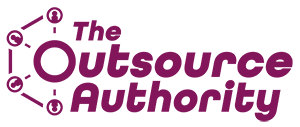Hiring freelancers can sometimes feel like venturing into the unknown. 🌟 Whether you’re a startup aiming to scale quickly or a small business looking to streamline operations, freelancers offer a flexible and cost-effective solution. However, several misconceptions about hiring freelancers can cloud judgment and deter business owners from leveraging this valuable resource.
One common myth is that freelancers are not as reliable as full-time employees. This misconception often stems from a lack of understanding of how to properly vet and manage freelance talent. Another widespread belief is that freelancers lack the necessary skills or commitment to deliver high-quality work consistently. In reality, many freelancers are highly skilled professionals who choose freelancing for the flexibility and variety it offers.
Additionally, some business owners worry that managing freelancers remotely is too challenging. With the right tools and communication strategies, managing a remote team can be seamless and even advantageous. Freelancers can bring fresh perspectives and specialized skills to your projects without the long-term commitment and overhead costs of permanent staff.
In this blog, we’ll debunk some of the most common myths surrounding freelancers, providing you with the knowledge you need to make informed decisions. From concerns about reliability and skill levels to the perceived difficulties in managing remote talent, we’ll address these misconceptions head-on. Understanding the truth about hiring freelancers can unlock new opportunities for your business, allowing you to tap into a diverse pool of talent without the overhead costs of full-time employees.
Ready to separate fact from fiction? Let’s dig in and uncover the realities of hiring freelancers! 🚀
Myth: Freelancers are often perceived as unreliable because they work independently and may have multiple clients.
Reality: The belief that freelancers are unreliable is a common misconception. Many freelancers are highly professional and deliver quality work on time. They depend on positive reviews and repeat business to sustain their careers, which incentivizes them to maintain high standards of reliability and professionalism.
Professional Practices: Freelancers often implement rigorous project management practices to ensure timely delivery. These include using project management tools, setting clear milestones, and maintaining open communication channels with clients. Many freelancers also sign contracts that outline deadlines, deliverables, and quality standards, further ensuring their commitment to reliability.
Personal Experience: I’ve worked with well over 400 freelancers for various tasks and projects. Many of these freelancers I order from on a monthly basis. It’s particularly useful to have someone that will take the minutia work off my or my team’s plate. The reason I continue to work with freelancers is that I can rely on them to get the job done. I’ve had employees and contractors who missed the mark as well, but working with freelancers has provided the most consistent reliable help for my business needs.
Evidence: Various online platforms, like Upwork and Fiverr, have built-in review and rating systems that allow clients to evaluate freelancers based on their previous work. High ratings and positive reviews are indicators of a freelancer’s reliability and quality of work.
Myth: There’s a belief that freelancers are less skilled or only take on freelance work because they can’t secure full-time positions.
Reality: This misconception couldn’t be further from the truth. Many freelancers specialize in specific fields and continuously update their skills to stay competitive in the ever-evolving gig economy. The flexibility and diversity of freelance work often attract highly skilled professionals who are experts in their respective domains.
Specialization and Expertise: Freelancers often choose to focus on particular niches or industries, allowing them to hone their skills and become experts in their fields. This specialization means they bring a wealth of knowledge and proficiency to the projects they undertake. For example, a freelance graphic designer might specialize in branding for tech startups, providing highly tailored and effective solutions.
Continuous Learning: To remain competitive, freelancers invest in their professional development. They frequently participate in online courses, attend industry conferences, and stay updated with the latest trends and technologies. This dedication to learning ensures they bring cutting-edge skills and innovative approaches to their clients.
Evidence: Many freelancers have extensive backgrounds working with well-known organizations before transitioning to freelance work. They choose the freelance lifestyle for its flexibility and the ability to select projects that align with their passions and expertise. The gig economy has also expanded due to the pandemic, with more professionals seeking remote work opportunities that their previous jobs couldn’t provide.
Freelance platforms showcase the expertise and qualifications of freelancers, with many profiles highlighting advanced degrees, certifications, and a portfolio of impressive projects. The ratings and reviews on these platforms further demonstrate the high level of skill and professionalism freelancers bring to their work.
Myth: Some believe that managing freelancers is complicated and time-consuming.
Reality: With the right tools and communication strategies, managing freelancers can be straightforward and efficient. In fact, managing freelancers can be far less time-consuming than managing employees, especially when freelancers are focused on specific projects while employees may juggle several responsibilities.
Streamlined Management: Managing freelancers often requires less oversight compared to full-time employees. Freelancers typically handle one project at a time, which means there’s less to monitor on an ongoing basis. By leveraging a specific expert for each project type, you reduce the complexity of management. Once you’re in a groove with recurring orders, freelancers get to know your preferences, making the process even smoother.
Effective Tools and Practices: The key to successful freelancer management lies in using the right tools and adopting effective communication practices. Here are some essential tools and strategies:
- Project Management Tools: Platforms like Trello, Asana, and Monday.com help you keep track of tasks, deadlines, and progress. These tools allow for clear organization and easy tracking of project milestones.
- Communication Platforms: Tools such as Slack, Microsoft Teams, and Zoom facilitate real-time communication, enabling quick discussions and problem-solving. These platforms also support file sharing and integration with other tools.
- Regular Check-Ins: Scheduling regular check-ins ensures that both parties are aligned and any issues are addressed promptly. This practice fosters a collaborative working environment and keeps projects on track.
- Detailed Briefs and Clear Instructions: Providing freelancers with detailed briefs and clear instructions minimizes misunderstandings and ensures that the work meets your expectations. The more specific you are about your requirements, the better the results will be.
Client Experience: In my experience, managing freelancers has proven to be highly efficient. With well over 400 freelancers engaged for various tasks and projects, the consistency and reliability have been remarkable. Many freelancers handle the minutiae, freeing up time for strategic tasks. Over time, the familiarity and understanding between us have streamlined the process further, making it even less time-consuming.
Hiring freelancers can be a game-changer for your business, busting the myths that often surround this approach. Freelancers are reliable, highly skilled, and, with the right management techniques, can seamlessly integrate into your operations. They offer flexibility, cost savings, and access to specialized expertise that can drive your business forward.
Ready to tap into the power of freelance talent? Download our free guide, “Outsource with Confidence: What I Learned from Buying 1,000 Gigs on Fiverr.” This comprehensive guide will equip you with the insights and strategies needed to confidently hire and manage top freelancers. Click here to download your free guide! 🚀







